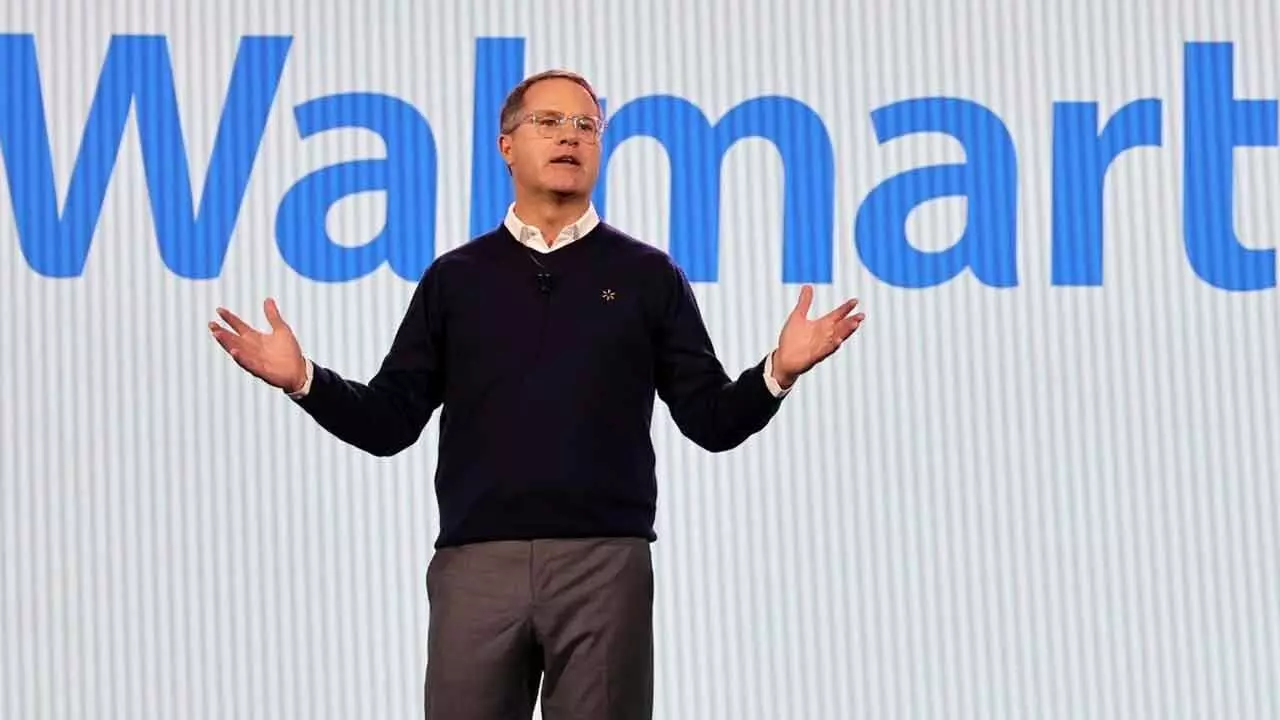Walmart's Global Vision: CEO Calls for Fair Play and Consistent Policies in Key Markets Like India
Walmart CEO Doug McMillon outlines the retail giant's global strategy, emphasizing the need for a "level playing field" and predictable policies in all its operating countries, particularly India. Learn about Walmart's stance on e-commerce regulations, its commitment to local sourcing, and how it navigates tariff challenges.
Walmart's Global Vision: CEO Calls for Fair Play and Consistent Policies in Key Markets Like India

In a candid address, Walmart Inc. President and CEO Doug McMillon reiterated the retail behemoth's desire for an equitable operating environment and policy stability across its international footprint, with a particular focus on the burgeoning Indian market. While acknowledging the current landscape of tariff challenges, McMillon expressed confidence in Walmart's ability to navigate these complexities better than many of its competitors.
"We operate in numerous countries, and a level playing field is consistently what we advocate for everywhere," McMillon stated when questioned about Walmart's aspirations in India. He underscored the company's approach to government engagement: "We engage with various governments, sharing our perspectives on necessary changes to better serve customers. However, we don't dictate the rules; our commitment is to be compliant with whatever regulations are in place."
E-commerce Landscape in India: A Call for Clarity and Consistency
The discussion naturally gravitated towards India's e-commerce sector, a market estimated at $125 billion, where foreign online retailers like Amazon and Walmart-owned Flipkart currently face restrictions. Unlike their locally owned counterparts, such as units of Reliance Retail and the Tata Group, foreign-backed e-commerce firms are not permitted to hold inventory or sell directly to consumers. This regulatory framework has been a point of contention in ongoing bilateral trade agreement (BTA) negotiations between the U.S. and India, which both nations are reportedly striving to finalize next month.
McMillon, at 58, clarified that Walmart remains separate from these inter-governmental trade talks. However, he emphasized the critical importance of clear and transparent policies for business operations. "From a business perspective, clarity and transparency are always beneficial," he noted. "Businesses thrive on consistency and predictability, whether domestically or globally."
When pressed on how soon Walmart would prefer a model allowing Flipkart to manage its own inventory in India, McMillon highlighted the company's core expertise and customer-centric approach. "We manage inventory in our businesses worldwide; it's a challenging task that we excel at," he explained. "If the rules permitted it, we would certainly embrace that opportunity. However, the determination of these rules rests with others."
Navigating Tariffs and Prioritizing Value
On the matter of tariffs, McMillon assured that Walmart's extensive sourcing capabilities position it well to manage the situation. Referencing tariffs imposed by the previous Trump administration in 2018, he said, "Walmart is better equipped to handle this than anyone. We have a team of highly creative and experienced merchants who can make diverse choices. Over the years, we've continuously optimized our merchandise sourcing."
He also stressed Walmart's preference for local procurement, citing its multiple benefits. "We prefer to buy locally. It creates jobs for customers, which we appreciate. It also offers the advantage of shorter lead times, particularly for food and consumables, though it's more complex for general merchandise."
A cornerstone of Walmart's philosophy, McMillon reaffirmed, is keeping living costs affordable for consumers. "We are dedicated to offering low prices. Helping people save money and live better is at the heart of our company's purpose – low prices are ingrained in our DNA," he stated passionately. "We will do everything within our power, through our own actions and by influencing others, to ensure the best possible value for our customers." Despite tariff challenges, Walmart remains committed to maintaining a competitive price gap against rivals, ensuring customers find value in every market it serves.
Expanding India's Sourcing Footprint
Looking ahead, Walmart is on track to achieve its ambitious goal of annually sourcing goods worth $10 billion from India by 2027. McMillon expressed enthusiasm about the progress. "It's encouraging to witness the developments here," he remarked. "The range of categories we are sourcing is expanding significantly. When we initially set this goal, fewer categories were involved, but that has broadened considerably." The company intends to announce its next sourcing target for India once the current objective is met, signifying a long-term commitment to both India and China as key sourcing hubs.

